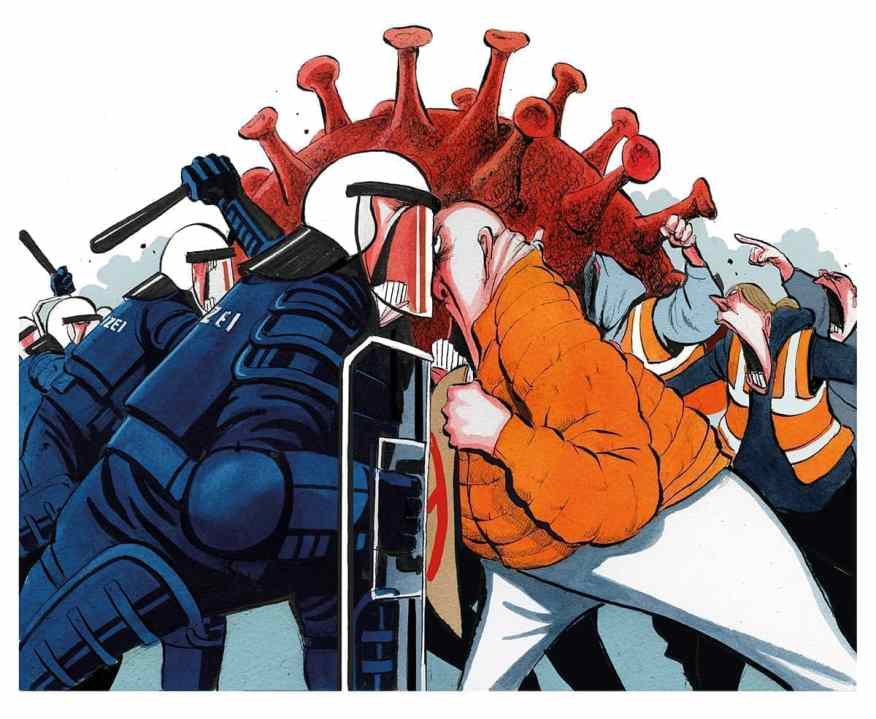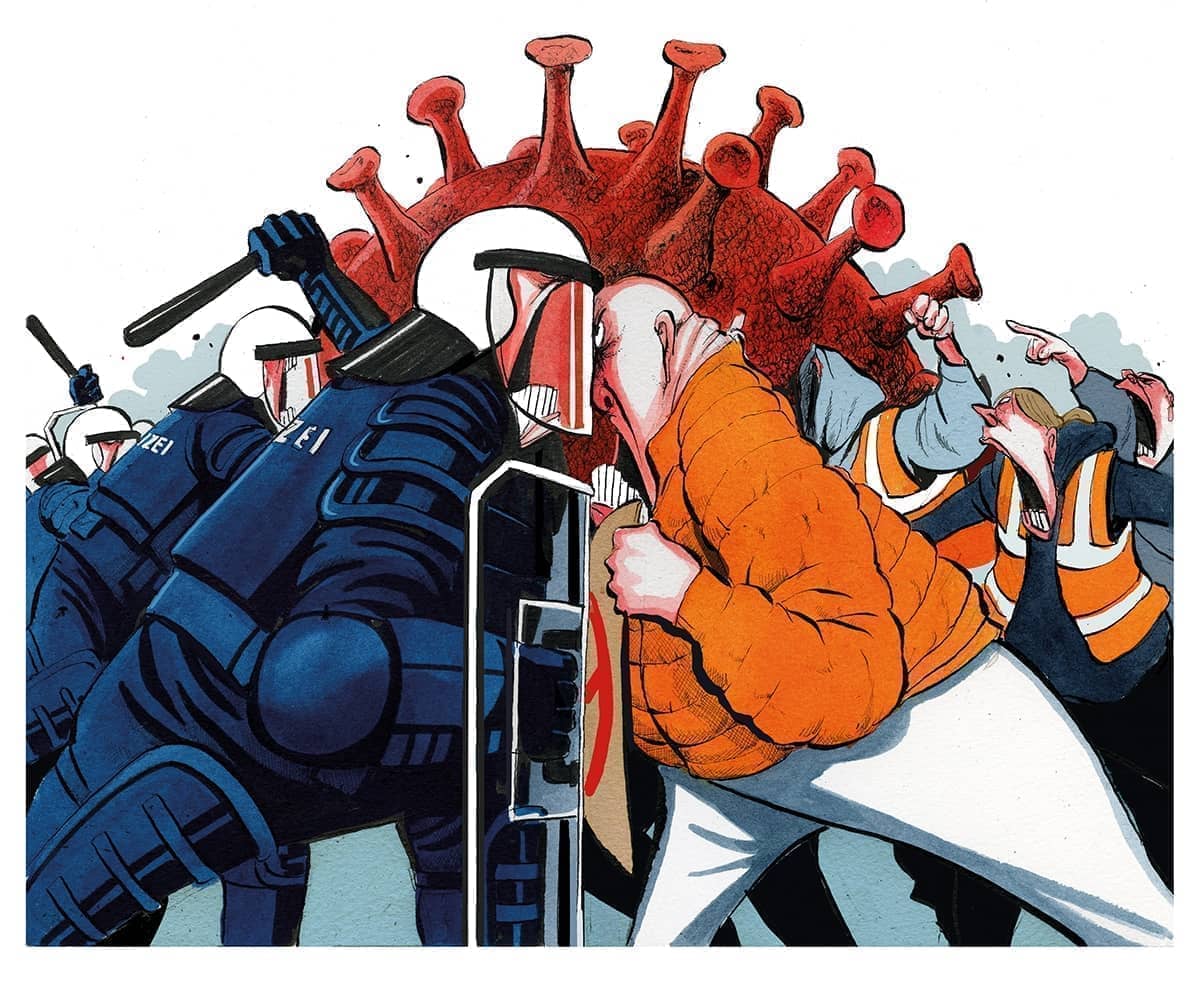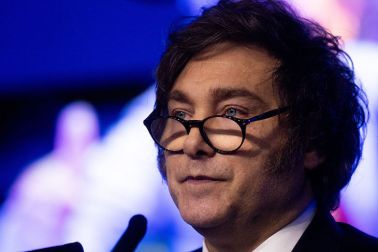The scaremongers have overplayed their hand. Omicron could prove disastrous, they warned. They scoffed at the early indicators from South Africa suggesting it was milder than Delta. ‘MYTH BUSTER’, declared the Sun when Chris Whitty poured cold water on the idea that Omicron might be milder than Delta. ‘Deaths could hit 6,000 a day’, screamed the Guardian, turning Sage’s worst-case scenario into a chilling headline. The news was full of it: we’re doomed.
Yet now it seems pretty clear that these fearful prophecies were way off. Just a week after we were being bombarded with these visions of the Biblical horrors Omicron would visit upon our nation, it’s being reported that this variant really is milder than the Delta one. This raises some really serious questions for the expert classes who are meant to be guiding us through this health crisis. Have they lost the plot? And now, will they lose the trust of the people?
The turnaround in recent days has been extraordinary. Last week, suggesting that Omicron might be milder was dangerous, it threatened to undermine the seriousness of the pandemic. Whitty became visibly frustrated whenever this possibility was raised. The Twitterati pooh-poohed any positive news coming from South Africa. (First South Africa was wrongly blamed for the Omicron variant, then its experts were implicitly defamed as untrustworthy amateurs when they said to the world: ‘Guys, you’re overreacting.’) Two million cases a day, thousands of deaths a day — that is virtually all we heard in relation to Omicron.
Maybe this is what Covid will be from now on — basically a bad cold
The front pages are starkly different today. ‘Official: Omicron 50% less severe’, says the Mail. ‘Omicron hospital risk is two thirds lower’, says the Telegraph. Even the Guardian’s no doubt distressed headline-writers have had to admit that their earlier vision of another nightmarish wave of disease whacking Brexit Britain might have been a tad overdone. ‘Risk of hospital stay is 40% lower with Omicron variant’, the front page says.
These good news headlines — yes, doom-mongers, we are allowed to call it good news! — spring from new studies into Omicron’s virulence. Researchers at Imperial found a 40 per cent reduction in the risk of hospitalisation for Omicron in comparison with Delta. Edinburgh University went further — they reckon there is a 65 per cent lower risk of hospitalisation. A South African study says the risk is between 70 and 80 per cent lower.
Researchers are still trying to establish exactly what makes Omicron milder than Delta. Is it the fact that so many of us are vaxxed now? Or is this variant intrinsically weaker than its horrible forebear? It seems to be the case that even when adjustments are made for the fact of vaccination, Omicron has a far less deadly impact than Delta. So perhaps Covid has exhausted itself. Maybe this is what Covid will be from now on — basically a bad cold. If so — Covid hysterics, look away now – that is good news.
Yet even as we cheer what looks like good news — and, yes, even as we continue to ensure that the NHS is prepped for a possible rise in Omicron-related hospital visits — we have to talk about why the first response from the expert class was to assault us with hellish visions of overrun hospitals and thousands of daily deaths. A democratic society like ours ought to have a reckoning with the alarming disparity between what we were told about Omicron and what seems to be the truth about Omicron, and ask ourselves how this could happen.
Consider that worst-case scenario of 6,000 deaths a day. The Sage folk will say it was just a projection. But these people weren’t born yesterday. They knew, surely, that this horrific number would be latched onto by sections of the media. That it would evoke fear in much of the population. And they must have known that it was the most severe projection to make — one that has a very low chance of ever coming to fruition.
Think of it like this. The peak in average daily Covid deaths in India — a nation of 1.3 billion — was 4,000. That was in May, when not that many Indians were vaxxed. Were we really meant to believe that Britain, with its mere 68 million souls, better vaxxed and with better healthcare than India, would suffer more daily deaths than India ever did?
One argument I’ve heard many times is that it is better to overreact to a pesky virus like Covid-19 than to underreact. But is that true? Our response to Covid has consequences, too. Lockdowns, as the World Health Organisation now admits, have terrible consequences for the economy and for mental health.
And fear has consequences, too. Inducing dread and alarm among the populace, encouraging people to think the near future will be bleak, damages the social fabric. It causes national dejection, a culture of atomisation. Everyone asks if Boris Johnson will take responsibility for Omicron, given he has refused, so far, to enforce harsh measures. But who will take responsibility for the social sickness caused by the incessant banging of the drum of fear? Sage? Whitty? The media?
Then there’s the cynicism about vaccination these people risk provoking. The idea that a highly vaxxed country like ours could be battered by Covid in an even worse way now than we were in the pre-vaccination era sends the message that vaccines are pointless. I’ve lost count of the number of friends and family members — all highly reasonable supporters of the vaccine programme — who have messaged me to say: ‘So what was the point of all those shots?’ If we value the wonderful successes of our vaccination drive (and we really ought to) then we really must dial down this nonsense about life never improving in the Covid era.
Omicron could prove to be a turning point, not only for this blasted, mutating virus, but also for the politics of public health. People, I hope, will start to question the fear-led agenda. They will want to know why dire prophecies continue to be made even after previous ones fell apart. They will start to feel agitated by the ceaseless efforts from on high to manage our behaviour by telling us there will be apocalyptic consequences if we disobey. We’re adults. We’re citizens. Start treating us like that.








Comments